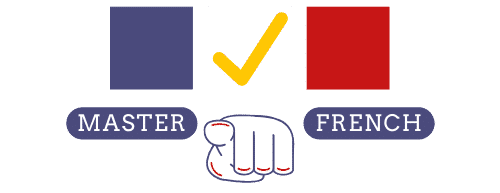How to use "à moins que" in French
Published on 20 April, 2021 by Mylene in French Grammar ▪

À moins que is a subordinating conjunction in French and introduces a hypothetical fact. It expresses an idea that suggests the opposite of the main part of the sentence. For example, in the sentence “à moins qu’il pleuve, j’irai me promener” (unless it was raining, I’ll go for a walk), “à moins que” is used to indicate that there may be an exception (the rain) and that this exception could change the situation (the walk).
To help you understand how to use this expression in French, I’ll give you many examples and sentences that contain à moins que. You should also pay attention to the tense of the verb used, the negation, and the interrogative form.
This blog aims to enumerate and explain the right ways of using “à moins que” and for that, we’re going to address the following points:
- À moins que: a subordinating conjunction
- Video: How to use à moins que in French
- À moins que and the subjunctive
- How to use le ne explétif
- Sauf si and à moins que
À moins que: a subordinating conjunction
Usually, you understand when someone speaks French, you hear expressions and you don’t know how to use them, like for example the expression “à moins que”.
Real-life example with “à moins que”
You are invited to a dream weekend in Paris. There is a great program planned for you. You will visit the Louvre, you will go up to the Eiffel Tower and have dinner at a famous restaurant with your friends. You really want to go to this restaurant.
You will come unless you miss the train (tu vas venir à moins que tu manques le train).
À moins que can be replaced by except “si”
We do not know if this will happen but it remains a possibility.
- Si tu manques le train alors tu ne pourras pas venir. If you miss the train then you won’t be able to come.
- Tu vas venir à moins que tu manques le train. You will come unless you miss the train.
Example:
I am going on vacation during the Christmas holidays. I am going to visit my family in the South of France. It’s a long journey. It’s a 7-hours journey by car.
- Je vais faire ce voyage à moins qu’il neige. I’ll be doing this trip unless it snows.
- Je vais faire ce voyage sauf si il neige. I will take this trip unless it snows.
- Je vais faire ce voyage à moins qu’il ne neige. I’ll be doing this trip unless it snows.
Did you notice the negation “ne” in the previous sentences?
A video in French to learn to use “à moins que”
To learn more, watch this video. Subscribe to my YouTube channel and follow me on Instagram. If you need to, activate French subtitles.
À moins que requires the subjunctive
You have to use the subjunctive after the expression “à moins que”.
À moins que + subject + ne + subjonctif.
Example:
- Je vais courir seul, à moins que tu veuilles venir. I’ll run alone, unless you want to come.
Understanding “le ne explétif” in French
The “ne explétif” is not a negation in French. It does not change the meaning of the sentence, but that is used for stylistic purposes, to express the presence of a negative idea.
- Je vais faire ce voyage à moins qu’il neige. I will take this trip unless it snows.
- Je vais faire ce voyage à moins qu’il ne neige. I will take this trip unless it snows.
These two sentences have the same meaning.
I’ll give you another example.
It’s lunchtime and I have prepared healthy French foods. The vegetables and salmon are cooked and piping hot. You absolutely have to come before it gets cold. I tell you then:
- Viens manger avant qu’il ne soit trop tard. Come eat before it’s too late.
- Viens manger avant qu’il soit trop tard. Come eat before it’s too late.
These two sentences say the same thing. The sentence above containing the “ne explétif” expresses a fear of arriving too late to eat.
The “ne explétif” allows you to express a nuance of negation in the mind of the speaker.
The “ne explétif” is optionally used after verbs or verbal phrases that express fear and worry (without being in the negative form):
- J’ai peur que l’examen ne soit trop difficile. I’m afraid the exam will be too difficult.
We do not use the explétif ne when the verb expressing fear is already in the negative form:
- Je n’ai pas peur que le sujet d’examen soit trop difficile. I’m not afraid that the exam subject is too difficult.
When asking questions in French, it’s possible to use the “ne explétif” in the interro-negative form:
- N’as-tu pas peur que le sujet d’examen ne soit trop difficile ? Aren’t you afraid that the exam topic will be too difficult?
Sauf si: a similar expression
You can use “sauf si” to replace “à moins que” in a French sentence.
“Sauf si” is followed by the indicative, and “à moins que” by the subjunctive.
Example:
- Je vais marcher sauf s’il pleut. I will walk unless it rains.
- Je vais marcher à moins qu’il pleuve. I will walk unless it rains.
Improve your French skills
That’s it! You’ve learned how to use the expression “à moins que”.
Speaking French and mastering the art of communication can be challenging, even for native speakers! Check our French conversations program if you’re looking to practice the real French language.
Looking to discover a wide variety of great content? Check our videos on YouTube and on Instagram to listen to French content posted every week.


